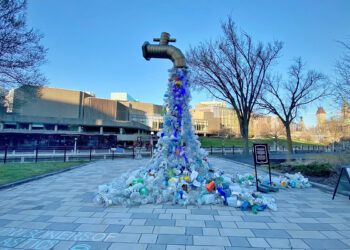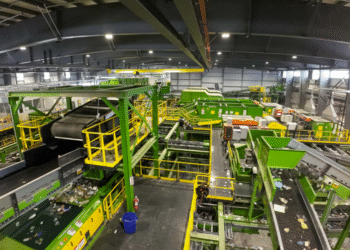Resource Recycling News
Member states select new chair for global plastics treaty
During a short session, the Intergovernmental Negotiating Committee elected Chilean diplomat Julio Cordano to continue efforts toward an internationally binding...
ecoATM recycled 7.5M phones in 2025 as payouts hit $1.5B
Used-cellphone recycling kiosk network ecoATM collected around 7.5 million consumer devices in 2025, pushing its lifetime collected volumes past 50...
Dual WM MRF launch strengthens Ontario recycling infrastructure
WM has opened two new facilities in Ontario capable of processing 30% of the province's total volumes under new EPR...
REUSE Act heads to US House for consideration
The bill would require the US EPA to collect data on reuse and refill systems across industries including consumer packaging,...
Export trends offset containerboard production decline
AF&PA reported a 4% decline in containerboard production for 2025, while packaging paper shipments rose 2% in December and boxboard...
Allied Industrial portfolio companies complete two early-year deals
Liberty Waste and Waste Eliminator, two Allied-backed portfolio companies, started the year with tuck-in acquisitions expanding their regional footprints.
Ball Corp. looks to World Cup after record 2025
Acquisitions and new capacity are part of the aluminum can manufacturer's strategy to place supply closer to demand, helping to...
SWANA partners with Product Stewardship Institute
The Solid Waste Association of North America and the Product Stewardship Institute are formalizing their collaboration to address materials management...
Agilyx leaves US chem recycling, Houston sorting center
The European company will transfer its ownership share in the Houston plastics sorting center to JV partners LyondellBasell and ExxonMobil.
PP cups now ‘widely recyclable’ with increased acceptance
With more than 60% of US households having access to curbside recycling collection for PP to-go drink cups, the How2Recycle...























